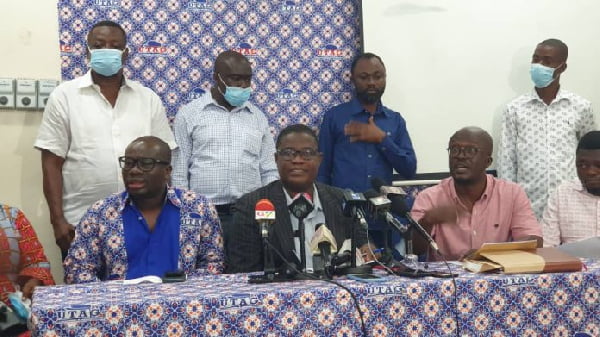The University Teachers Association of Ghana (UTAG) has recently issued a stern warning, signaling the possibility of a strike action to disrupt industrial harmony over grievances related to book and research allowances
This development has caught the attention of many within the country, as UTAG plays a crucial role in the educational landscape. The looming threat of a strike has raised concerns about potential disruptions to academic activities and the broader issue of maintaining industrial harmony within Ghana’s higher education sector.
University Teachers Association of Ghana (UTAG) has issued a stern warning, stating that its members will not resume classroom activities in January 2024 unless the government fulfills specific financial commitments.
Explanation of the Cause of the Impending Strike Action
UTAG emphasized that the government must pay the negotiated ex-pump rate and settle all accrued arrears by the agreed-upon deadline of the 1st of November 2023. The association clarified its stance, underlining that the implementation of the National Research Fund should not replace the critical Book and Research Allowance (BRA), a significant component of UTAG members’ conditions of service.
UTAG expressed concern over the undue delay in disbursing the BRA for the completed 2022/2023 Academic year, causing tension on university campuses. Urging the government to expedite the process, UTAG set a deadline of the 21st of October for the disbursement of the Book and Research Allowance to avoid potential disruptions to industrial harmony within the education sector.
UTAG clarifies that the implementation of the National Research Fund should not replace the infamous Book and Research Allowance (BRA), which is a critical component of the conditions of service of the Members of UTAG, which has been delayed unduly for the already completed 2022/2023 Academic year as many Lecturers in public universities are yet to receive this reimbursable expenditure. This is creating tension on our campus.
We are urging the Government to ensure that all UTAG Members receive their Book and Research Allowance by the 21st of October to avoid disrupting industrial harmony, UTAG stated.
UTAG’s contemplation of a strike action brings to the forefront the broader challenges facing the education sector, including the need for adequate financial support for academic research and scholarly endeavors. The outcome of this dispute has the potential to impact not only the working conditions of university teachers but also the quality of education and research output from Ghana’s institutions of higher learning.
As stakeholders await further developments and negotiations between UTAG and relevant authorities, the specter of a strike underscores the urgency of addressing the concerns raised by university teachers. The resolution of this issue will not only determine the immediate fate of academic activities but also set a precedent for the prioritization of academia in national policy and resource allocation.


